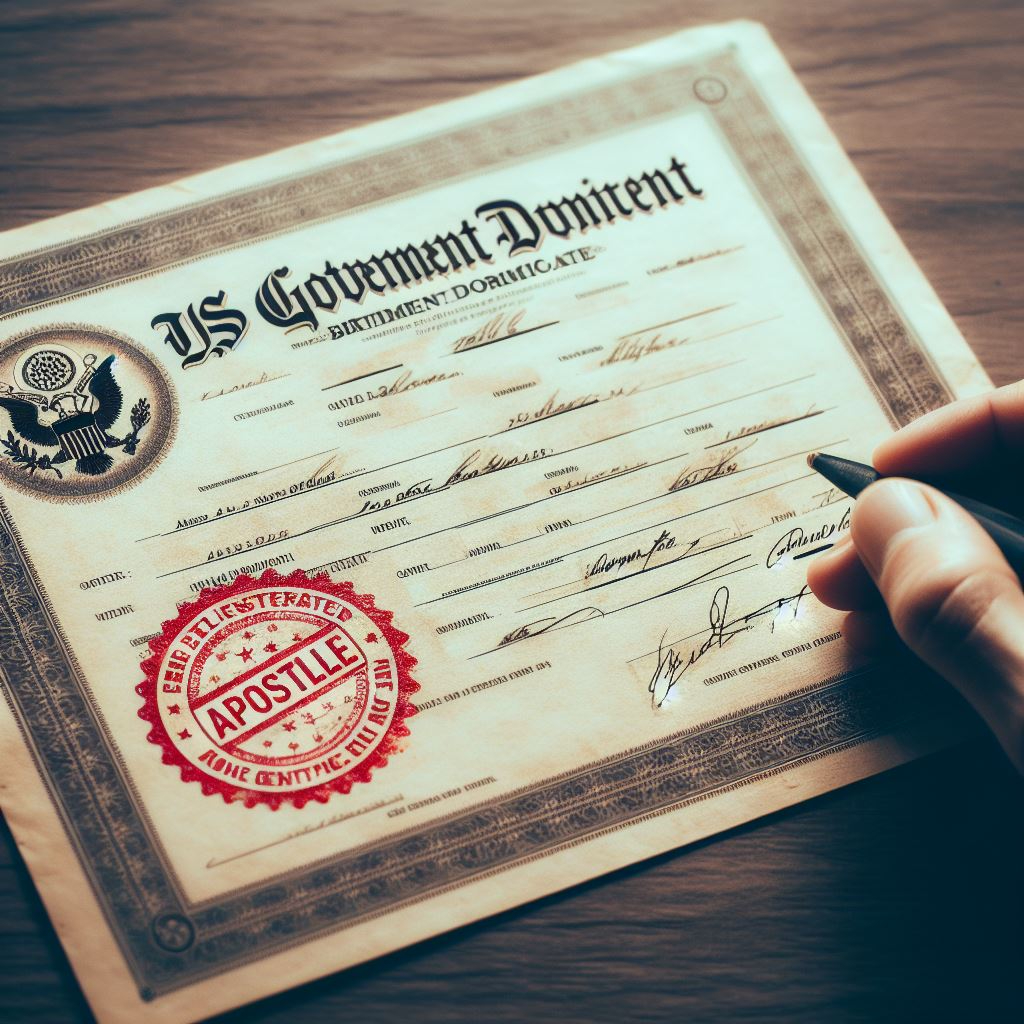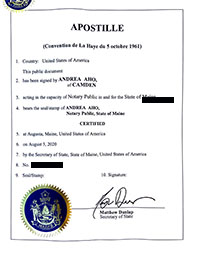Understanding the Apostille Process: A Comprehensive Guide to International File Authentication
Browsing the complex landscape of international document verification can be intimidating without a clear understanding of the apostille process. This overview thoroughly details the necessary actions, from determining which documents call for certification to submitting them for verification by the Competent Authority. Grasping the relevance of an apostille and recognizing potential risks, such as insufficient entries and language barriers, can considerably enhance the authentication trip. What precisely defines an apostille, and why is it so essential for papers predestined for Hague Convention nations? These concerns create the structure of our expedition into this crucial legal procedure.
What Is an Apostille?
An apostille is a main certification that verifies the credibility of a record for usage in another country. This accreditation, issued by a marked authority in the country where the paper stemmed, makes certain that the paper is identified as valid and reputable in the international field. The process of getting an apostille involves numerous steps, consisting of the confirmation of the document's signatures, seals, and stamps by ideal governmental bodies.
The apostille offers as an internationally acknowledged form of authentication, implemented by the Hague Convention of 1961. This treaty, formally referred to as the Hague Convention Eliminating the Demand of Legalisation for Foreign Public Files, standardizes the procedure of file accreditation among participant countries. The apostille itself is a standard certification that includes particular info, such as the releasing authority, the native land, and the day of issuance.
It is essential to note that not all documents are qualified for an apostille. Usually, public documents like birth certifications, marriage licenses, court orders, and academic diplomas get this certification. Private documents, such as contracts and arrangements, may call for notarization and added steps to certify.
Significance of Apostille
Recognizing what an apostille is sets the stage for valuing its relevance in international negotiations. houston tx apostille. An apostille, basically a form of accreditation issued by an assigned authority, validates the authenticity of a record for use in foreign nations that are notaries to the Hague Apostille Convention. This standard process gets rid of the requirement for more legalization by consular offices or consular offices, thereby enhancing global transactions
The relevance of an apostille can not be overstated. It ensures the credibility and acceptance of vital records-- such as birth certifications, marriage licenses, and instructional diplomas-- throughout boundaries. For businesses, it helps with the smooth conduct of worldwide trade, mergings, and acquisitions by providing a trusted method of file verification. This minimizes bureaucratic hurdles, saving both time and resources.
Additionally, an apostille enhances legal protection and compliance. Governments and organizations can with confidence depend on the credibility of records birthing an apostille, mitigating the risk of scams and misstatement. Hence, the apostille acts as a vital device in advertising global collaboration and depend on. Its function in fostering efficient and secure international transactions underscores its essential value in today's interconnected world.
Papers That Require Apostille
When participating in international deals or lawful matters, particular records frequently demand the authentication offered by an apostille. This guarantees their acknowledgment and acceptance in countries that are signatures to the Hague Apostille Convention. Commonly, personal papers such as birth certifications, marital relationship certificates, and death certifications call for an apostille, especially when they are used for processes like migration, marital relationship abroad, or international probate matters.
Educational files are one more classification regularly calling for apostilles. Diplomas, transcripts, and academic records typically require this verification for objectives such as seeking further education, employment, or professional licensing in a foreign country (houston tx apostille). This step ensures that the files are acknowledged as legit and legitimate
Lawful records, consisting of powers of attorney, sworn statements, and court orders, likewise commonly demand apostilles. Business records such as certificates of unification, laws, and commercial contracts might call for an apostille to facilitate global profession, develop international branches, or take part in cross-border legal proceedings.
Steps to Get an Apostille

Obtaining an apostille involves a multi-step process that makes sure the authenticity and acceptance of your documents in international nations. The preliminary step is identifying which documents require an apostille. houston tx apostille. Usual papers include copyright, marital relationship licenses, scholastic transcripts, and corporate documents
As soon as recognized, the file her latest blog should be certified by the ideal providing authority. This might involve registration by a notary public or verification by a local or state authorities, depending upon the type of record. After accreditation, the document needs to be submitted to the designated Competent Authority in the paper's country of beginning. In the USA, for instance, this is typically the Assistant of State's office for each and every state.
The submission procedure typically calls for a completed application kind, the original paper, and a fee. Some jurisdictions might provide the alternative of expedited processing for an extra cost. Upon successful confirmation, the Competent Authority will attach the apostille certification to the document, consequently confirming its authenticity.
Usual Obstacles and Solutions
Navigating the apostille process can provide a number of usual obstacles that, if not appropriately resolved, may delay or make complex paper verification. Each country has details needs for the types of records that can be apostilled, and any type of variance from these can result in denial.
An additional common obstacle is comprehending the different processing times. Processing times can differ considerably between countries and even between various areas within the very same nation. Read Full Article It is vital to make up these variants when preparing the apostille procedure to stay clear of unanticipated hold-ups.
Furthermore, language barriers can pose significant barriers. Records in an international language commonly need certified translations, and any errors in translation can bring about more issues. Engaging a professional translation solution can alleviate this risk.

Conclusion
Mastering the apostille procedure substantially improves the efficiency of international record verification. By comprehending the need of determining and certifying called for papers, and navigating the entry to the Competent Authority, the procedure becomes extra workable. Awareness of usual difficulties, such as incomplete entries and language barriers, better aids in preventing possible delays. Making certain papers are Full Article correctly apostilled facilitates their approval in Hague Convention signatory countries, thereby sustaining seamless worldwide lawful and administrative treatments.